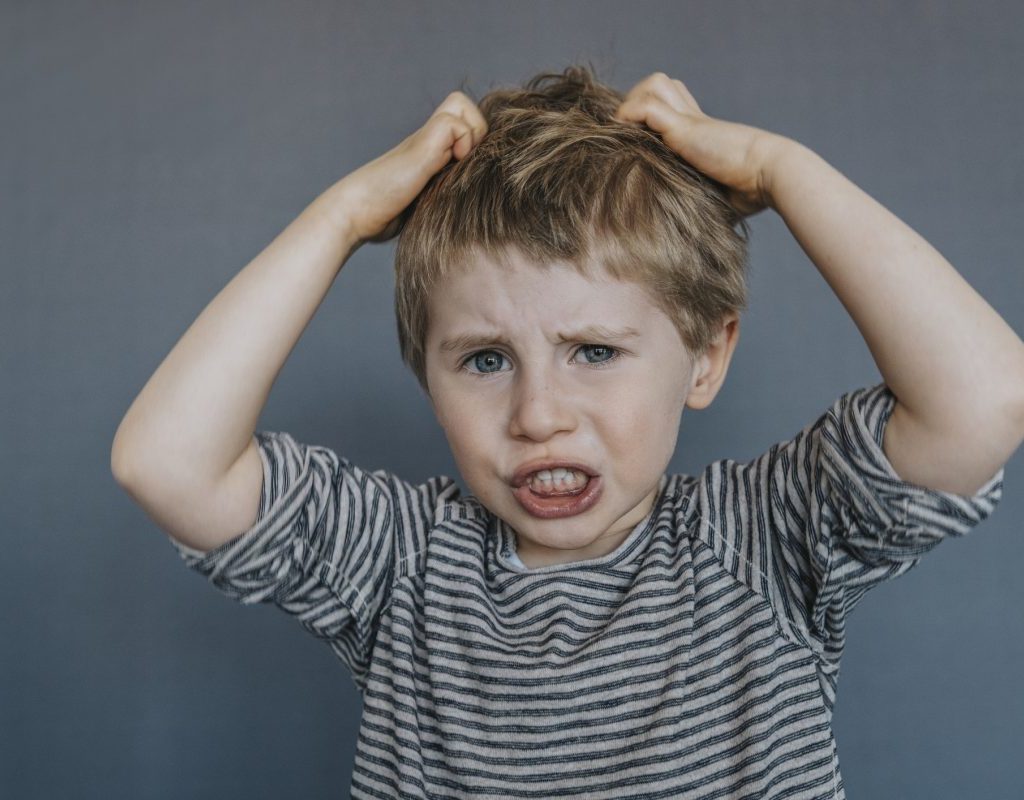
Kids often exhibit behavior that many parents can’t understand. Toddlers especially know how to bring a bit of pizazz to the day. Their behavior can often be silly and spontaneous, but it can also be worrying. It’s a jarring experience for any parent the first time their sweet baby reaches up and hits them. It’s even more confusing for parents to see their toddler turn their anger inward and hit themself in the head or on their body. Why toddlers hit themselves can be something every parent struggles with.
Children who have never been physically disciplined may still hit themselves, scratch themselves, or pound their heads against walls or the floor when they’re frustrated. Why do toddlers do this? Do they grow out of it? What do parents do to stop it? And when do you know whether you might need to seek professional guidance for your child? Let’s dig into this part of toddlerdom most parents will have to deal with.
Why do toddlers hit themselves?
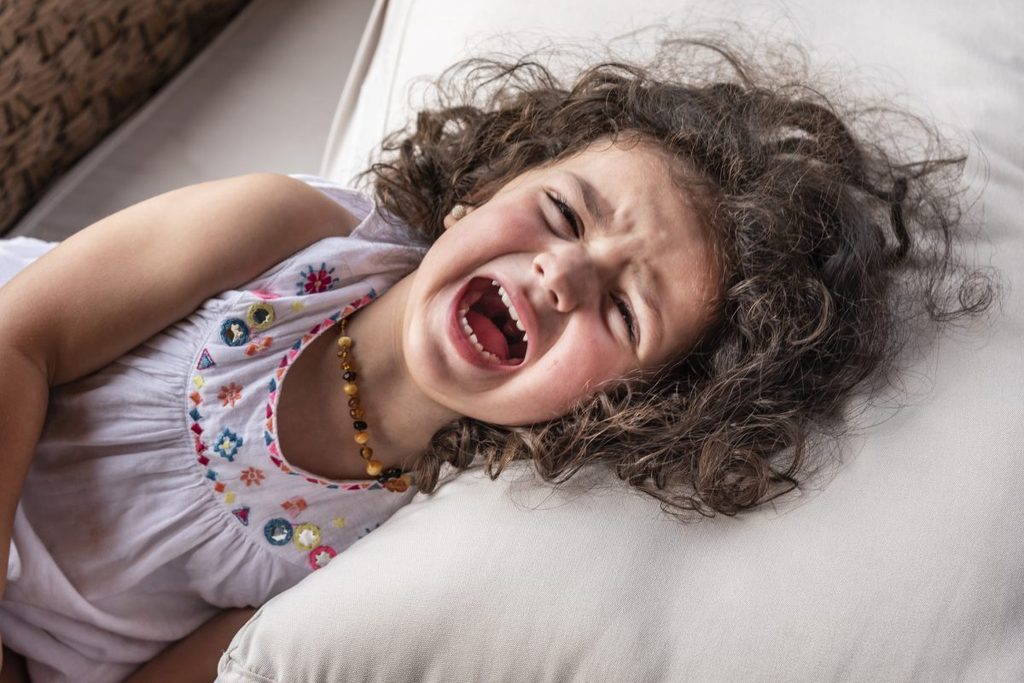
- They don’t know how else to communicate
- They are just curious about what would happen
- They could have a developmental issue
Dr. Patricia Kurtz, the director of neurobehavioral outpatient services at the Kennedy Krieger Institute’s Department of Behavioral Psychology, has done extensive research on this type of behavior in young children. Her research has found that self-injurious behavior usually emerges before the age of 1, which is before most children start talking. Young children who can’t effectively communicate may use self-injurious behavior as a method of expressing their distress and frustration to their caregivers.
Since toddlers are interested in experiencing new sensations, some may experiment with hitting or pinching themselves just out of curiosity — the same reason they grab a set of keys off the table and put it in their mouths. Dr. Kurtz has found there are at least one of five common risk factors among families where self-injurious behavior persists beyond a brief stage. These are parenting practices, child communication, caregiver depression, caregiver stress, and lack of social support.
Children who have trouble communicating with their caregivers in typical ways but who have caregivers who respond swiftly to self-injurious behavior may fall into a pattern of repeating that behavior to get their caregiver’s attention. They see it as the only thing that works to get the attention they want.
How parents should address this behavior
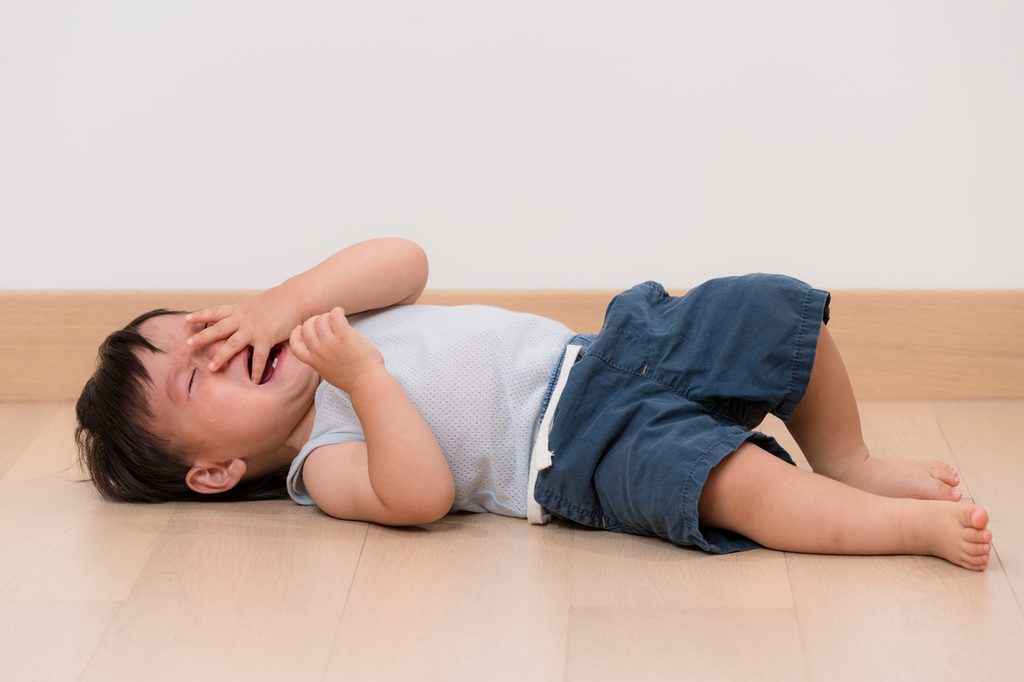
- Remain as calm as possible
- Try to de-escalate
- Give the child an alternative option
Watching their children harm themselves is scary for parents and makes them want to rush in and stop the behavior immediately. However, a big reaction will inadvertently make the behavior more attractive to a child. Janet Lansbury, a parent educator, instead wants parents to try to stay calm.
For a child who is banging their head against the floor, Lansbury recommends slipping a thin pillow under the child’s head instead of trying to physically restrain the behavior. For a child who is biting themself, she suggests saying something like “Yeah, ooh. You wanna bite yourself. Here’s something you can bite,” and offering the child a teething ring or another safe toy.
Calm de-escalation will let your child see that their behavior won’t get a huge response from you. This will help it lose its luster and they will stop using it as their go-to method for attention.
How to navigate your child through a hitting spell
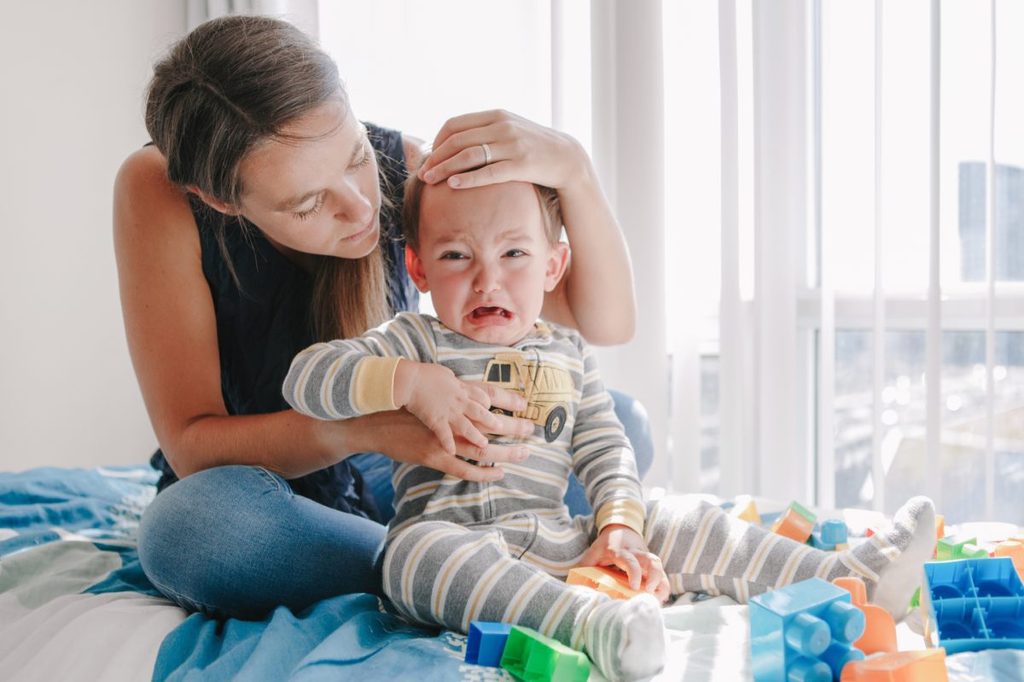
If you have older children, or remember your own childhood, you could think of something you may have done for a little bit, but grew out of. Just like the stages where kids never stop asking “why,” won’t keep clothing on, and will only eat one food for six months, your toddler hitting themself could be another stage they have to grow out of. There are a few things to mind if this is your tot.
Give them a safe space
As with giving them a pillow to bang their head on or a toy to squeeze or chew on, give your child a room or space to take out their aggression safely. Create a room or corner without hard toys or sharp edges where your child can go when they display the behavior and may feel tempted to punch a pillow rather than their chest. Give them a place they can punch or kick or hit, but not get hurt.
Check for deeper issues
Children don’t only hit themselves out of boredom. Your toddler could be banging their head against the wall because their ear hurts. Look for an injury in the ear or a possible ear infection. The banging could be distracting them from the pain, or it could make it feel better. You should also feel around for a new tooth, as the same concept with the ear infection applies.
Show only love
Parents know they need to remain calm during a self-hitting spell, but they need to go deeper than that. Don’t scream at your child to stop it and don’t get angry at them for doing it.
Only talk to your child in an affection tone, use positive words, and use gentle physical touch to help your child through the episode. If you notice your child doing it at a certain time of day, start showering your child with love, kindness, and hugs at that time.
Is self-injurious behavior a sign of autism or other developmental delays?
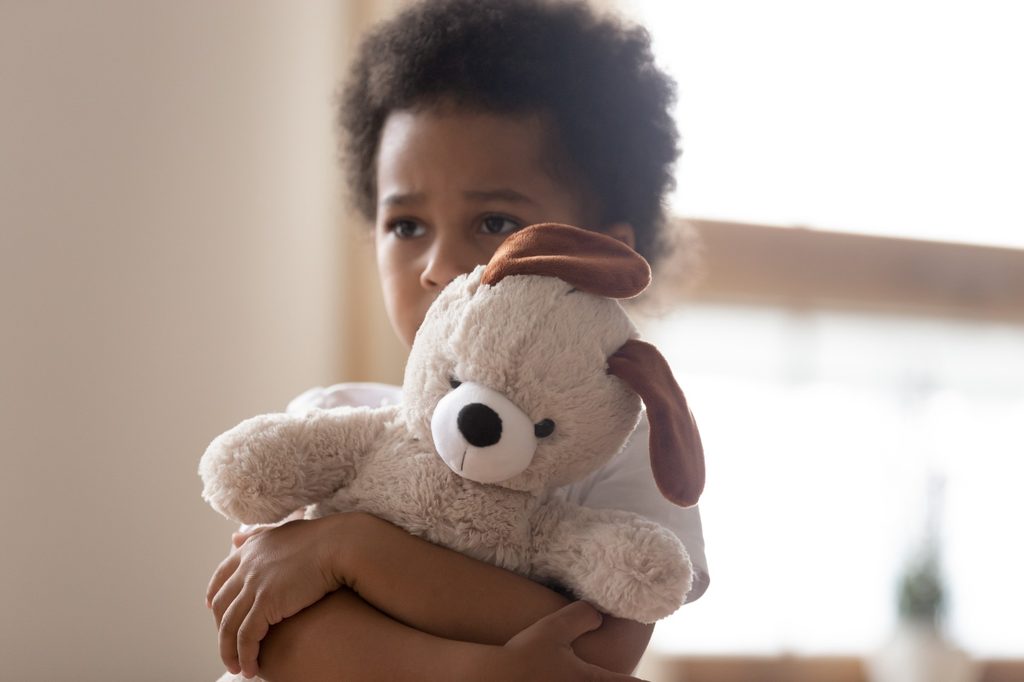
Your little one hurting themselves could be linked to them being autistic. Researchers at the Department of Educational Psychology at The University of Minnesota studied a group of 149 children ages 1, 2, and 3 who had older siblings who were autistic to help determine the relationship between self-injurious behavior and autism.
Their research found that while nearly 40% of children displayed self-injurious behavior at age 1, that figure had dropped to less than 25% for 3-year-old children. Children with autism, however, were 4 times as likely as other children to injure themselves.
Autistic children may display other behaviors, including poor eye contact, difficulty maintaining conversations, and exhibit restrictive or repetitive patterns of behavior. If your child’s self-injurious behavior consistently continues after the age of 1 or seems to increase in duration or severity, talk to their pediatrician to determine if it might be a sign of developmental delay or other condition.
When to seek help

Hitting is a fairly common behavior among toddlers, but there are signs that you may want to reach out to a professional for some guidance, including how to cope with their aggressive behavior. Healthline notes that you may want to seek professional help if:
- You’ve tried to stop the behavior with the usual strategies and nothing has changed, or it’s gotten worse.
- Your child is injuring themselves (giving themselves bumps, bruises, or scratches).
- Your child has delayed speech or seems unable to hear you clearly.
- Your child is showing signs of physical illness, like fever, loss of appetite, fatigue, or irritability.
- Your child also has symptoms of a developmental condition, like autism spectrum disorder or sensory processing disorder.
Interventions to address this behavior

Though many children may get over their phase of self-injurious behavior without any intervention, parents need to pay attention to what seems to trigger the action in their child. Keeping a record of when the behavior started, when it appears, and whether it is getting more or less severe helps your child’s pediatrician and other professionals effectively address the behavior and help to get your child to stop it.
The options for treatment are different if a child self-injures in response to pain versus a child who is using self-injurious behavior to try to communicate. For older children whose self-injurious behavior is in response to their struggle to communicate, teaching them basic sign language or using a communication board helps mitigate some of the frustration that causes the urge to self-harm.
The next time you see your little one trying to rip their hair out, banging their head against a cabinet, or biting their arm, take a beat before you jump in. Were they just told they couldn’t have a toy? Is it getting close to dinner or bedtime?
Think about what was going on right before they started harming themselves or what is happening next in the day and see if you figure out what is making your child upset so you could work with your child on stopping the hitting. Work with your child (and their pediatrician if needed) to come up with a different form of communication or a safe way to get the emotions out so everyone stays safe while still letting your toddler know they are seen and heard. Each new stage with your child could require some detective work, and this is one where parents will need to put in a little extra effort to work out.


